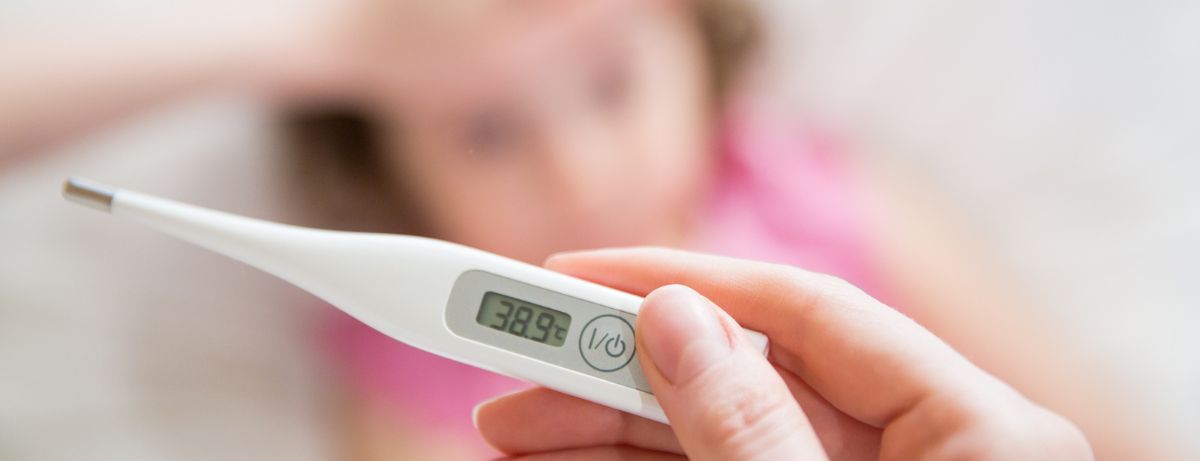20% off €35
Strep A: What is it?

Strep A: What is it?
You might have heard about Strep A in the news or from your child’s school or nursery. It’s a type of bacteria (group A streptococcus) that usually causes a mild illness. However, in rare cases, it can lead to more severe or even life-threatening conditions.
While still uncommon, there is an increased number of Strep A cases compared to recent years and it’s important to look for the signs and minimise the spread where possible.
Strep A is a type of bacteria that can infect people and cause illness. It can also cause scarlet fever.¹
Most strep A infections cause a mild illness (similar to cold) and can be easily treated.
Rarely, the bacteria may enter the bloodstream and cause a more serious condition called “invasive Group A strep” (iGAS).¹
Look out for the following symptoms of Strep A in you or your child:²
- Flu-like symptoms, like a high temperature or swollen glands
- Muscle aches
- A sore throat
- A rough, “sandpapery” rash (scarlet fever).³ On brown and black skin it might be harder to see a change in colour, but you can still feel the rash and see the raised bumps
- Nausea and vomiting
- Scabs and sores (impetigo)
Strep A is usually spread through:
- Respiratory droplets (i.e. coughs and sneezes)
- Close contact with an infected person
It’s also possible for the bacteria to spread through a wound.²
This means it’s very easy to transmit and you should stay at home if you think you or your child may be infected.
Read on to find out how to minimise the spread of illnesses like Strep A.
If you think you or your child has Strep A
You should stay at home wherever possible if you think you or your child has Strep A. Strep A is usually treated by antibiotics, so you can visit your GP to receive these.
However, you should not go to work or send your child to nursery or school until you have been taking antibiotics for 24 hours. This will help prevent spreading the illness to other people.²
Continue taking the antibiotics as directed until you have finished them, even if you begin to feel better.
Ways to soothe Strep A symptoms
Your doctor or healthcare professional should be able to prescribe antibiotics for Strep A, and it usually only takes a day or two to begin feeling better. Contact your GP if there’s no improvement in your symptoms after 48 hours.
In the meantime, you can help to soothe your symptoms by:⁴
- Gargling salt water: This can help ease a sore throat in adults and older children. Mix ¼ teaspoon of salt in 8 fl oz (237ml) of warm water. Gargle and spit the water out; do not drink it.
- Drinking plenty of water: Staying hydrated is always important, but even more so when you’re ill. It will also help to keep your sore throat lubricated and minimise soreness.
- Consider pain relief: Taking over-the-counter pain relief such as paracetamol and ibuprofen, keeping in mind the dosage on the label.
- Getting lots of rest: Stay at home and get plenty of sleep.
- Eating soft foods: If your throat is sore and you’re struggling to eat, stick to soft, easy-to-swallow foods like soups, yoghurt, ice lollies, or puréed or mashed foods.
Since Strep A bacteria can enter the system through wounds, those with atopic eczema (atopic dermatitis) may be more at risk of infection if they have broken skin.
There’s some evidence to suggest that children with atopic eczema and Strep A infection are more likely to experience complications than some other bacterial infections like staphylococcus aureus.⁵
Many people with eczema find their symptoms worsen in winter, so be sure to practice good hand and respiratory hygiene (although, be careful, as over-washing your hands can worsen cracked and sore skin).
It’s also important to look out for physical symptoms of Strep A and scarlet fever, particularly if your child has eczema. Scarlet fever starts as small blotches and spreads to become a bright red rash with a rough, sandpapery texture.
Most people will recover from Strep A after taking antibiotics for a few days.
However, there are instances where it can develop into a more serious infection like iGAS.
Seek an urgent GP appointment or consult NHS 111 immediately if:²
- Your child is unwell and getting worse
- Your child shows signs of dehydration (such as a dry nappy for at least 12 hours, or not many tears when they cry) ⁶
- They are very tired, irritable, or confused
- They are eating much less than normal
- Your baby is under 3 months and has a temperature of 38°C or higher, or is 3-6 months and has a temperature of 39°C or higher
And call 999 immediately if:²
- Your child is having difficulty breathing
- There are pauses when they breathe
- They are limp, floppy, or will not wake up or stay awake
- Their skin, tongue, or lips are blue or grey; on darker skin
How to help boost your child’s immunity this season
Children are less likely to take the precautions we might when we’re out and about, and their immune systems aren’t equipped to deal with infections as well as adults.
Teaching them good hand and respiratory hygiene can help to minimise the spread of bugs like Strep A. Make sure they know:
- How to wash their hands properly (with warm water and soap, for at least 20 seconds)
- To cover their mouth and nose with a tissue when they cough or sneeze, and to wash their hands and dispose of the tissue in a bin immediately
Getting the right vitamins and nutrients won’t prevent your child from getting illnesses like Strep A, but it will help them to build a stronger immune system.7 This can help them recover from minor bugs more quickly and easily.
Ideally, we should get our nutrition mostly through our diet. However, a daily supplement can help to top things up if this isn’t possible.
You can also help to keep your child’s immune system as strong as possible by:
- Making sure they get plenty of exercise
- Minimising stress where possible
- Minimising exposure to smoking (including second-hand smoke)8
The advice in this article is for information only and should not replace medical care. Please check with your GP or healthcare professional before trying any supplements, treatments or remedies. Food supplements must not be used as a substitute for a varied and balanced diet and a healthy lifestyle.
Before taking any supplements or minerals, it’s best to make sure you’re getting all the nutrients through your diet first.
Last updated: 9 December 2022
- https://educationhub.blog.gov.uk/2022/12/07/strep-a-and-scarlet-fever-what-are-they-and-what-are-the-symptoms-information-for-parents-schools-colleges-and-early-years-providers/
- https://www.nhs.uk/conditions/strep-a/
- https://www.nhs.uk/conditions/scarlet-fever/
- https://www.mayoclinic.org/diseases-conditions/strep-throat/diagnosis-treatment/drc-20350344
- https://pubmed.ncbi.nlm.nih.gov/21517950/
- https://www.pampers.co.uk/baby/feeding/article/dehydration-babies
- https://www.bhf.org.uk/informationsupport/heart-matters-magazine/nutrition/ask-the-expert/boosting-immunity
- https://www.ncbi.nlm.nih.gov/pmc/articles/PMC5352117/



